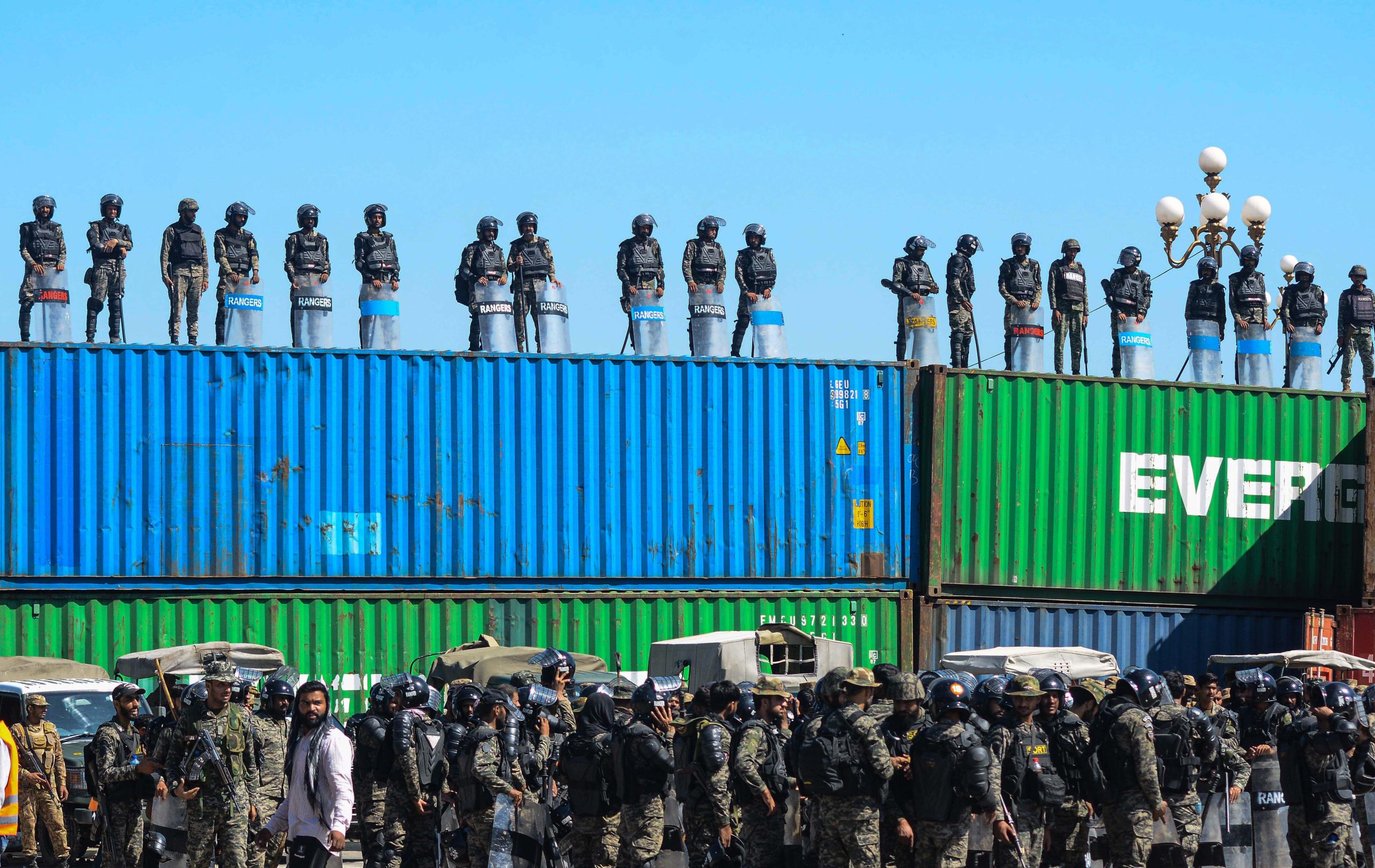In the last week of November, Pakistan went into what was essentially an internet blackout. Social media apps like WhatsApp were inaccessible after the authorities blocked internet and mobile phone services. This was ahead of a planned march to Islamabad by supporters of former Prime Minister Imran Khan’s Pakistan Tehreek-e-Insaf party (PTI), in protest of Khan’s imprisonment.
The government cited security concerns and initially said it would be a partial shutdown, but internet delays and shutdowns were reported across the country. Two weeks after the protest, users were still reporting connection delays that are impacting both their communications and their livelihoods. In addition to this most recent internet shutdown, Pakistani authorities have also restricted connection through a content specific “firewall”.
This isn’t the only form of censorship seen in Pakistan amid the crackdown on PTI’s long march, both before and after the event. Prominent journalist Matiullah Jan was picked up by a group of unidentified individuals from Pakistan Institute of Medical Sciences (PIMS) hospital in Islamabad on 28 November and released on 30 November on bail under a narcotics and terror case that international human rights organisations are calling “bogus” and “baseless”.
Soon after his abduction, his son put out a statement calling out authorities for arresting his father over his reporting. Jan was also abducted in 2020, and is one of many journalists in Pakistan who continue to be punished for their work.
Farieha Aziz, a Karachi-based journalist and director of digital rights organisation Bolo Bhi, told Index that Pakistan’s increase in crackdowns and censorship in recent years impacts people in one of two ways.
“Some will [fight it] even more, and some will become more circumspect,” she said. Experts believe that what happened around the protest seems to be the final piece in long drawn-out efforts to slowly curb internet access and freedom of expression in the country.
With internet access being shut down regularly whenever there’s a major event — including protests and elections — these attempts are becoming increasingly successful.
“These restrictions will only increase. They aren’t something that will go away with time,” said digital rights researcher Seerat Khan, adding that authoritarianism is increasing across the globe and that those influences are being seen in Pakistan too.
Aziz added that Pakistan’s direction makes it comparable with countries which are known for their questionable human rights records. She said that parallels can be made with Myanmar and China, for instance, and restricting the use of virtual private networks (VPNs) can be compared to Russia.
What’s particularly concerning activists and everyday citizens is that this censorship is becoming part of everyday life. Aside from the complete internet shutdowns — which already cause significant damage — internet delays and bans on certain content are also common and a lot harder to spot.
Digital rights activist and researcher Anam Baloch explained that by not blocking entire platforms all the time, Pakistan’s internet bans aren’t always immediately detectable.
“Recently, WhatsApp and Instagram issues were reported but when we tested [them] on OONI [Open Observatory of Network Interference] they were fine because they were not blocking entire platforms,” Baloch told Index.
It’s not just freedom of expression that’s impacted. Pakistan’s economy heavily relies on its growing digital sector, and the country produces 20,000 IT graduates every year — many of whom work as freelancers or in small startups that rely on the internet. IT industry trade association, the Pakistan Software Houses Association (P@SHA), released a statement predicting that the disruptions could result in a loss of $300 million for the country’s IT sector.
“A lot of reporting has been done on how it affects freelancers and small businesses, which is true because they don’t have backups. But what the media is [leaving] out is that the internet forms the basis of most businesses, even in Pakistan, where for some reason people think it doesn’t matter. Everything works on some kind of digital connectivity,” freelance cybercrime and tech journalist Sindhu Abbasi said.
All of these impacts are linked together, Khan added, and freedom of expression directly links to other freedoms like access to information and freedom of association and assembly.
“All these freedoms are under attack,” she said. And there’s no longer much room to challenge the restrictions.”
“You’re out of options of what to do. [Before] you could file a public interest litigation or speak to someone in parliament,” Aziz said, adding: “Not that [anything] happened because of that, but at least there was this dialogue — and now there’s no dialogue.”
Censorship has been slowly increasing, while Pakistanis have looked on in horror as they’ve felt unable to do anything to prevent it. First came the internet and mobile services shutdowns during election days and important events. Then in February of this year, X was banned, as the Interior Ministry claimed the platform was a “threat to peace and national security.”
Abbasi said that under the former PTI government, “the internet would be blocked in areas we call ‘peripheries’, such as Balochistan and Gilgit-Baltistan”. More recently, reports of internet bans in Kurram after problems with sectarian violence in November and in Pakistan-administered Kashmir during protests in May, show just how much the government relies on these bans as a form of control.
For now, rights advocates are losing hope of finding a way out, and many have told Index that things may only get worse from here.





